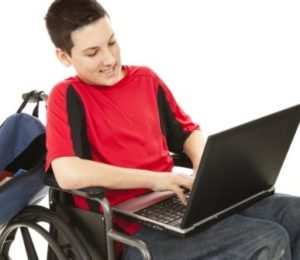
A Flinders University-led study will try to find out how social media can help young people with disabilities in rural and regional areas to build their social networks and reduce loneliness and isolation.
Chief Investigator Dr Pammi Raghavendra, a senior lecturer in Flinders’ Disability and Community Inclusion Unit, said that living in non-metropolitan settings adds a further layer of disadvantage for young people with disabilities.
“There is research to show there’s more social isolation in regional areas, where there is also reduced access to technology and other resources,” Dr Raghavendra said.
“The internet is a core part of all of our lives. It’s not just for social networking; it’s for education, for learning, recreation and leisure, and we use it to manage our finances,” she said.
“If we’re not providing support, access and training to people with disabilities, we are disadvantaging them from the use of this mainstream, inclusive technology.”
“We think the internet might be another way of strengthening their existing social networks, as well as providing opportunities for them to develop some new networks.”
The two-year project, which will focus on Mount Gambier and Port Lincoln, South Australia’s largest regional centres, has been awarded $204,671 of the total $750,000 available in the first round of the Federal Government’s National Disability Research and Development Grants, and an additional $30,000 from the State Government’s Department for Communities and Social Inclusion.
Dr Raghavendra will conduct the project with Associate Professor Denise Wood from the University of South Australia’s and Dr Lareen Newman from the Southgate Institute for Health, Society and Equity.
With the support of collaborating partners – the Department for Communities and Social Inclusion, the State’s Disability Services agency, Department for Education and Child Development, and Novita Children’s Services – the team will survey young people with disabilities to determine the nature and extent of their current internet use.
Based on the survey results, up to 20 young people with disabilities will be recruited in the second phase of the project. Each will be provided with individualised assistive technology such as adapted keyboard or special software, depending on their needs, as well as training and support.
“We will set goals with the young person and their family as to how they want to use the internet for social networking,” Dr Raghavendra said.
“If a goal is to initiate a conversation on Facebook, we will sit with them, help them to practice and give them opportunities to try it with familiar people first.”
The third, novel phase of the study is to provide online peer mentoring to each of the participants.
“We are going to employ five young people with disabilities who are very experienced internet users who will be mentors to the recruits. They will strengthen the skills and knowledge they’ve learned through the face-to-face intervention.”
Dr Raghavendra said that, following from the team’s successful intervention with young people with disabilities in metropolitan Adelaide, she was hopeful of positive outcomes.
“Helping these young people to get access to the internet is going to open their world. Although this project is looking specifically at the social aspect, I’m sure there could be broader benefits such as employment opportunities that come from providing access to internet use and training.”
The National Disability Research and Development Grant is administered on behalf of the Australian Government’s Disability Policy and Research Working Group.


It is heartening to see young people with disabilities taking a leading role in the research paradigm, rather than being passive participants as in past paradigms. Well done, Pammi and your team.Julie Smith